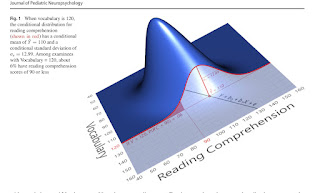Is there a Flynn effect for attention? Cross-temporal meta-analytical evidence for better test performance (1990–2021) - ScienceDirect
https://www.sciencedirect.com/science/article/pii/S0191886923003409?via%3Dihub
Generational IQ test score changes (i.e., the Flynn effect) have been observed for most measures of cognitive ability, although certain cognitive domains appear to be less affected by this effect than others. IQ test score changes have been found to differ between domains, but evidence of Flynn effects for specific IQ-related abilities is sparse. In the present cross-temporal meta-analysis, we investigate potential test score changes for attention as assessed by the d2 Test of attention. Based on data from 287 independent samples (N = 21,291) from 32 countries over a timespan of 31 years (1990–2021) we found evidence for moderate generational test score gains in concentration performance in adults, but not children. While no changes in test effectiveness were found for either age group, there was a substantial increase in overall errors and processing speed in children. Our results are consistent with the idea that IQ test score changes may be rooted in changes in executive functioning components and provide further support for domain-specificity of the Flynn effect.
https://www.sciencedirect.com/science/article/pii/S0191886923003409?via%3Dihub
Generational IQ test score changes (i.e., the Flynn effect) have been observed for most measures of cognitive ability, although certain cognitive domains appear to be less affected by this effect than others. IQ test score changes have been found to differ between domains, but evidence of Flynn effects for specific IQ-related abilities is sparse. In the present cross-temporal meta-analysis, we investigate potential test score changes for attention as assessed by the d2 Test of attention. Based on data from 287 independent samples (N = 21,291) from 32 countries over a timespan of 31 years (1990–2021) we found evidence for moderate generational test score gains in concentration performance in adults, but not children. While no changes in test effectiveness were found for either age group, there was a substantial increase in overall errors and processing speed in children. Our results are consistent with the idea that IQ test score changes may be rooted in changes in executive functioning components and provide further support for domain-specificity of the Flynn effect.
******************************************
Kevin S. McGrew, PhD
Educational & School Psychologist
Director
Institute for Applied Psychometrics (IAP)
https://www.themindhub.com
******************************************

Kevin S. McGrew, PhD
Educational & School Psychologist
Director
Institute for Applied Psychometrics (IAP)
https://www.themindhub.com
******************************************



















